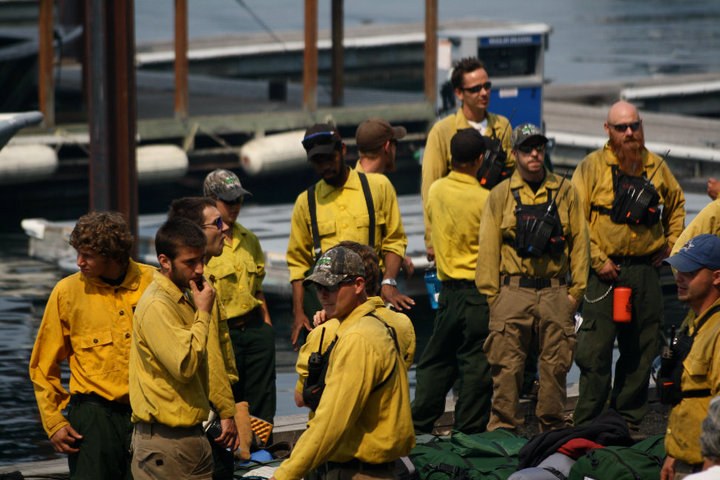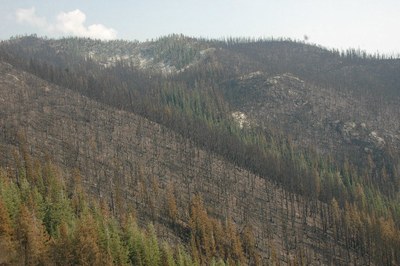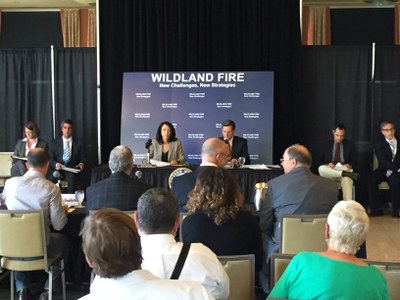
As many Mountaineers members experienced, this year was record breaking for wildfires. You may have had your hiking plans cancelled due to large fire-related closures in the Okanogan-Wenatchee National Forest, or if you spent time anywhere in the mountains this summer, you had a high chance of experiencing a smoky haze. Learn more about the proposed funding changes.
Wildfires and Outdoor Recreation
Over 900,000 acres have burned in Washington State this season. The impacts of these increasing megafires have been costly to homes, firefighters, and the Forest Service. The outdoor recreation world has also felt the consequences.
- Funds are Borrowed from Non-Fire Programs
When the Forest Service’s budgeted amount for fire suppression is exceeded, funds are borrowed from other accounts. Perhaps the most detrimental result of this ‘fire borrowing’ technique is the vicious cycle created when funds are taken from fire risk reduction functions such as hazardous brush removal. The system also takes needed resources away from recreation related programs.
- Staff and Resources are Diverted to Fight Fires
Seasonal and yearly staff are diverted to fight fires, leaving trail and other projects postponed or scrapped altogether. The impact of the 2015 wildfire season is having on our land managers shows – Okanagan Wenatchee National Forest closed a large section of the Forest north of Highway 2 not because of eminent fire danger, but simply because they didn’t have the resources to keep areas open.
- Restoration Becomes Delayed
Burned recreation areas remain closed for years when funding for restoration and staff is diverted.

In Washington state the impacts of fire borrowing in 2012 and 2013 alone included
- the failure to implement close to $400,000 in much needed recreation trail projects,
- postponement of cleanup of old hazardous mining sites,
- delayed facility maintenance at Mount St. Helens National Monument,
- substandard employee housing conditions, and
- tens of thousands of dollars of road and trail maintenance work delays, leading to reduced recreational access.
Given the catastrophic consequences of the past two fire seasons in our state, Congress should be focusing on common sense solutions that will fix the fire funding problem and provide communities and the US Forest Service the necessary resources to adapt and prepare for wildfire, not push an environmentally destructive bill that will negatively impact Washington state’s world-class recreational opportunities.
We need a real solution to the problem
This past Thursday, the U.S. Senate Agriculture Committee held a hearing to explore potential solutions to the fire funding crisis that is robbing the U.S. Forest Service of critical dollars for recreation, public access and habitat restoration work.
Unfortunately, some are using this crisis to push for unhelpful legislation such as the House-passed “Resilient Federal Forests Act” (H.R. 2647), which is currently awaiting action in the Senate Agriculture Committee. Concerns with this bill include how it would undermine important conservation laws and increase unsustainable logging in our national forests, impacting recreation opportunities on our public lands.
We do need a solution to halt the vicious cycle that sees the government constantly scrambling to respond to wildfire, but eliminating important environmental laws is not the answer.
Wildfire Disaster Funding Act of 2015
A new bill titled the Wildfire Disaster Funding Act of 2015 has been introduced to treat emergency wildfires like similar disasters and receive funding through disaster programs.
The Mountaineers, with the Outdoor Alliance, commented on the Wildfire Disaster Funding Act of 2015. We believe this work is a step in the right direction in addressing large wildfires as significant disasters while sustaining other important Forest Service functions simultaneously.

We attended Senator Cantwell and Barrasso's field hearing on this issue, that was held in Seattle in late August. You can read our comment letter from the Wildfire Field Hearing on this issue here.
 Luke Hogfoss
Luke Hogfoss